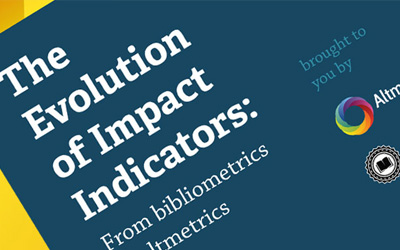
Normally I would write a year-end reflection solely focused on Scholastica and the larger academic publishing industry, but I feel that the events of 2020 beg a more personal and politically-positioned perspective — so I’ll start there.
A year of hard surprises
I didn’t expect a year of uncertainty and fear, made both more difficult and somehow more manageable by knowing everyone was going through the same thing.
I didn’t anticipate my basement office being featured in multiple webinars (note to self: you still need to decorate), or the extra 30 minutes needed before every meeting to run around with my 2-year old so he was played out enough to sit quietly with a book (er, iPad) while I worked.
When the year began, I didn’t expect to have another child in the midst of a global pandemic.
I didn’t expect the president of the United States to go full-on 1984 and ask people to fervently believe things that were obviously false and test the boundaries of democratic institutions in the US almost to the breaking point (knock on wood).
I didn’t expect to see issues of systemic racism and police brutality front-and-center in the nightly news for months, and I didn’t anticipate the emotional toll of seeing friends and colleagues process the polemic and politicized reactions to the protests and police response.
I’ve been extremely privileged in my position to weather 2020: I have space for a home office, a job where I can work from home, and the ability to work flexible hours to accommodate child care. I’m a white cisgender male living in a city (Chicago) that tracks with my progressive values and, through the pandemic, my family and friends have had no/mild COVID-19 infections. Even with all of that privilege, this has still been quite the shitshow of a year for me, and I can only do my best to empathize and be an ally to those suffering and in less privileged positions.
Adapting at Scholastica
The Scholastica team went fully remote on March 16, 2020. This was a relatively smooth transition due to our experience with remote work: our team members generally worked from home two days a week before the pandemic and we had two fully remote team members, so we had developed infrastructure and processes that assumed people were not all physically copresent.
We had years of experience using video calls, screen sharing tools, and daily standups, where some participants were video chatting, which stood us in good stead during the initial transition to fully-remote work. We shared some tips from our experience establishing a productive and purposeful “remote office” during a webinar we hosted along with ISMTE in early April — and we also learned a lot from Jennifer Mahar at Origin Editorial and Jodi Harrell at Research Square.
Internally, we adjusted our team goals and expectations as 2020 wore on, to accommodate the stress and psychological toll the year’s events were taking. We continued to improve the Scholastica product for our customers at a modified pace that is sustainable for our team and were able to roll out some amazing new features and resources:
- Plan S resources: We continued developing our Plan S Product Roadmap to ensure all Scholastica users will be able to be Plan S compliant if they choose. We also offered support to our customers like the Journal of Health Economics and Outcomes Research to help them unpack the Plan S implementation guidelines to reach compliance and fulfill many recommended technical OA publishing best practices as well.
- Indexing support: We introduced new and improved integrations with major indexes to help journals save time, including the ability for journals using our typesetting service to request automatic PubMed Central (PMC) article deposits, so they no longer have to manually deposit ZIP and XML files. Our support team also worked closely with journals like the Spartan Research Medical Journa to help them navigate the PMC application process and fulfill all of PMC’s technical evaluation requirements.
- OA payment processing: We added an integration with RightsLink, Copyright Clearance Center’s OA publication payment workflow solution, to help publishers like UC Press more seamlessly manage billing for journals transitioning to fully-OA models.
- Better article production: We continued to improve our article production service via machine learning enhancements and more normalized citations, helping journals like Georgetown Medical Review and the Journal of Global Health Reports have great looking PDFs and JATS-compliant XML while saving time.
- State of journal production and access: We conducted an industry survey of scholarly societies and universities publishing journals independently (i.e., not outsourced to a separate publisher) on how they are approaching journal production and access and their future priorities, compiling the results into the “The State of Journal Production and Access 2020“ report.
Our customers similarly bounced back — after an initial slow down during April and May, we saw a marked increase in journal activity for the rest of the year across the publishers using Scholastica:

This activity is all the more impressive given the challenges faced by individual editors and publishing staff (transitioning to remote work and teaching, child care challenges, etc.) and journal publishers (lost revenue from canceled conferences, uncertainty about grant and subscription renewals, etc.). Seeing how resilient editorial and publishing teams have been during this (as many have so aptly coined it) “dumpster fire” of a year, not to mention the countless peer reviewers working overtime to process coronavirus-related submissions, has been astounding. I think I can speak for the entire Scholastica team when I say we’ve felt especially proud and privileged to be part of the scholarly publishing community and working with so many incredible people in it.
Industry impact
Looking back, it’s amazing how much turmoil higher ed has experienced in 2020:
- Transitioning to online learning
- In-person conferences canceled or transitioned to virtual conferences
- Campus closures, reopenings, re-closures, and everything in between
- Academic job market down with significantly fewer job openings, largely due to institutional hiring freezes
- University enrollment decline of 2.5%, twice what it was in Fall 2019
- According to the Ithaka S+R US Library Survey 2020, roughly 75% of libraries surveyed have experienced budget cuts
We also saw a surge in scholarship related to COVID-19 and issues of systemic racism with new journals and special issues dedicated to these topics. At Scholastica, we saw an increase in journals posting statements related to systemic racism, such as this statement on Black Lives Matter from the editors of Media+Environment.
At a macro level, we saw some pretty shocking open access publishing fee announcements, including $11k+ APCs to publish OA articles in Nature and $8k+ for Elsevier’s Cell Press portfolio of journals. These sorts of über high publication fees contributed to existing concerns about how APCs will exacerbate global inequities within academic publishing.
On a positive note, we saw wonderful efforts to raise awareness about inequities in publishing and advance DEI (Diversity, Equity, and Inclusion). Thank you to everyone who shared their perspectives for our OA Week blog series this year! Similarly, we saw venues across our industry address questions of racism and institutional inequities, including the “We Step Aside“ series from The Scholarly Kitchen.
Looking forward to 2021
If 2020 taught us anything, it’s how fickle the future is and that continuity isn’t assured – and after this year, I’m really hoping things do NOT continue on the same path but pivot to a much brighter future.
In 2021 we’re going to see Plan S finally come into effect after a year delay to the original January 1st 2020 launch date. I’ll admit that I’m somewhat disappointed in where the Plan S requirements stand now versus when initially announced, specifically that current requirements do not give teeth to the principle “publication fees should be standardized and capped.” That said, I’m an optimist, so I’m hopeful that over time we’ll see concrete APC caps and transparent cost reporting.
For Scholastica, some priorities for 2021 include:
- More powerful peer review platform: We’ll be rolling out improvements across our peer review platform early in 2021, including the ability for publishers to standardize and require (when needed) more metadata fields during the submission process.
- More indexing support: We will continue optimizing the XML metadata and full-text article files we provide our production service and publishing platform customers for ingestion in major discovery services. And we’ll continue introducing integrations with leading indexing services to make seamless metadata and article deposits possible, something we know has historically been a challenge for many small and medium-sized publishers.
- More publishing service integrations: We hear from publishers that there is a huge value-add to being able to easily start using new tools (e.g., plagiarism detection software), so we’ll be prioritizing this moving forward.
- Emerging standards: We’re closely following the development of new PIDs and metadata standards such as RoR (Research Organization Registry) and MECA (Manuscript Exchange Common Approach) so we can make it easy for journals to have high-quality, standardized data.
- Modern technology: We want editors, authors, and reviewers using Scholastica to experience the best that modern web technologies can offer, so we’ll be upgrading our software platform throughout the year to provide an even better user interface and more robust analytics.
I don’t know what 2021 has in store, but I do know that Scholastica will continue on its mission to provide publishers with modern tools and services to make academic publishing more efficient, which I expect will be even more important as we deal with the current pandemic and its long-term impacts on our industry.
Here’s hoping that things will have improved to the point where we can safely travel again in the new year. I miss having the opportunity to meet publishers and service providers in our space at in-person events — though 2020 has certainly shown us that a well-executed digital conference can be amazing!
And here’s to a year of renewed hope and new beginnings in scholarly publishing and the wider world. From our team here at Scholastica to yours, we wish you a healthy and happy 2021.









